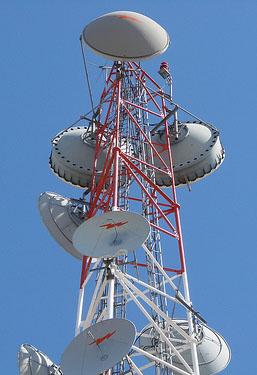Commerce Acting Deputy Secretary Rebecca Blank Visits Department Campuses in Boulder
Acting Deputy Secretary Rebecca Blank traveled to Boulder, Colorado this week to visit some of the department’s state-of-the-art facilities run by the National Institute of Standards and Technology (NIST), the National Telecommunications and Information Administration (NTIA), and the National Oceanic and Atmospheric Administration (NOAA).
Her four-hour tour included stops at the nation’s time standard, NIST's F-1 Cesium Fountain Clock; the quantum devices group where NIST scientists study and make volt standards, photon detectors and quantum computing chips; the temperature, humidity and vibration controlled Precision Measurement Lab, under construction at NIST and due to be completed in the spring of 2012; and NTIA's radio, video and audio labs at the Public Safety Communications research facility.
At NOAA, Blank saw demonstrations of a unique visualization tool, Science on a Sphere; toured the Space Weather Prediction Center and the National Weather Service’s Forecast Research Center; viewed a demonstration of the wind profiler model; and visited the Global Monitoring Division and the Environmental Data Archive.
The cutting-edge work that takes place at the department impacts the daily lives of the American people – from the accurate timekeeping ability of the Atomic Clock to high-tech weather forecasting capabilities to the continuous improvement of communications devices used by first responders. The scientists and researchers at NIST, NTIA and NOAA are leaders in research and development and help to keep the United States at the forefront of innovation and global leadership.






